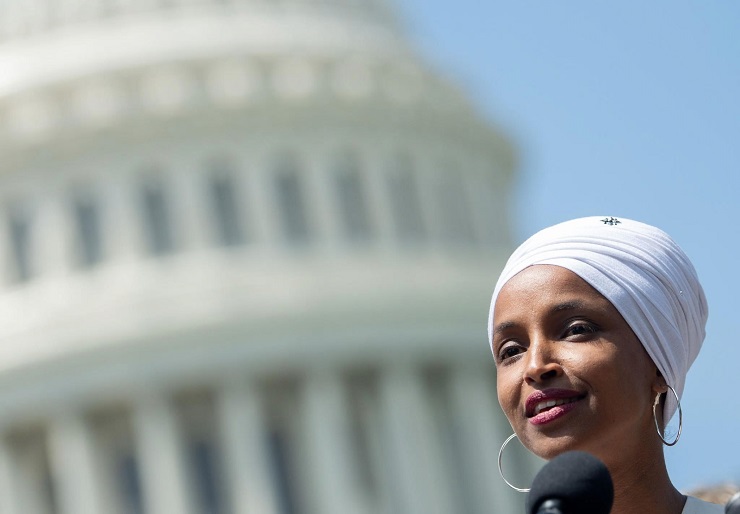Like Ilhan Omar, I grew up blaming the Jews for everything. I changed, but can she?
once opened a speech by confessing to a crowd of Jews that I used to hate them. It was 2006 and I was a young native of Somalia who had been elected to the Dutch parliament. The American Jewish Committee was giving me its Moral Courage Award. I felt honoured and humbled but a little dishonest if I didn’t own up to my anti-Semitic past. So I told them how I’d learned to blame the Jews for everything.
Fast-forward to 2019. A US congresswoman has been infuriating the Jewish community and discomfiting the Democratic leadership with her expressions of anti-Semitism. Like me, Ilhan Omar was born in Somalia and exposed at an early age to Muslim anti-Semitism.
Some of the members of my 2006 AJC audience have asked me to explain and respond to Omar’s comments, including her equivocal apologies. Their main question is whether it is possible for Omar to unlearn her evident hatred of Jews — and, if so, how to help.
In my experience it is difficult, perhaps impossible, to unlearn hate without coming to terms with how you learned to hate. Most Americans are familiar with the classic Western flavours of anti-Semitism: the Christian, European, white supremacist and communist types. But little attention has been paid to the special case of Muslim anti-Semitism. That is a pity because today it is anti-Semitism’s most zealous, most potent and most underestimated form.
I never heard the term anti-Semitism until I moved to the Netherlands in my 20s. But I had first-hand familiarity with its Muslim variety. As a child in Somalia, I was a passive consumer of anti-Semitism. Things would break, conflicts would arise, shortages would occur — and adults would blame it all on the Jews.
Read the article by Ayaan Hirsi Ali in The Australian (from The Wall Street Journal).

